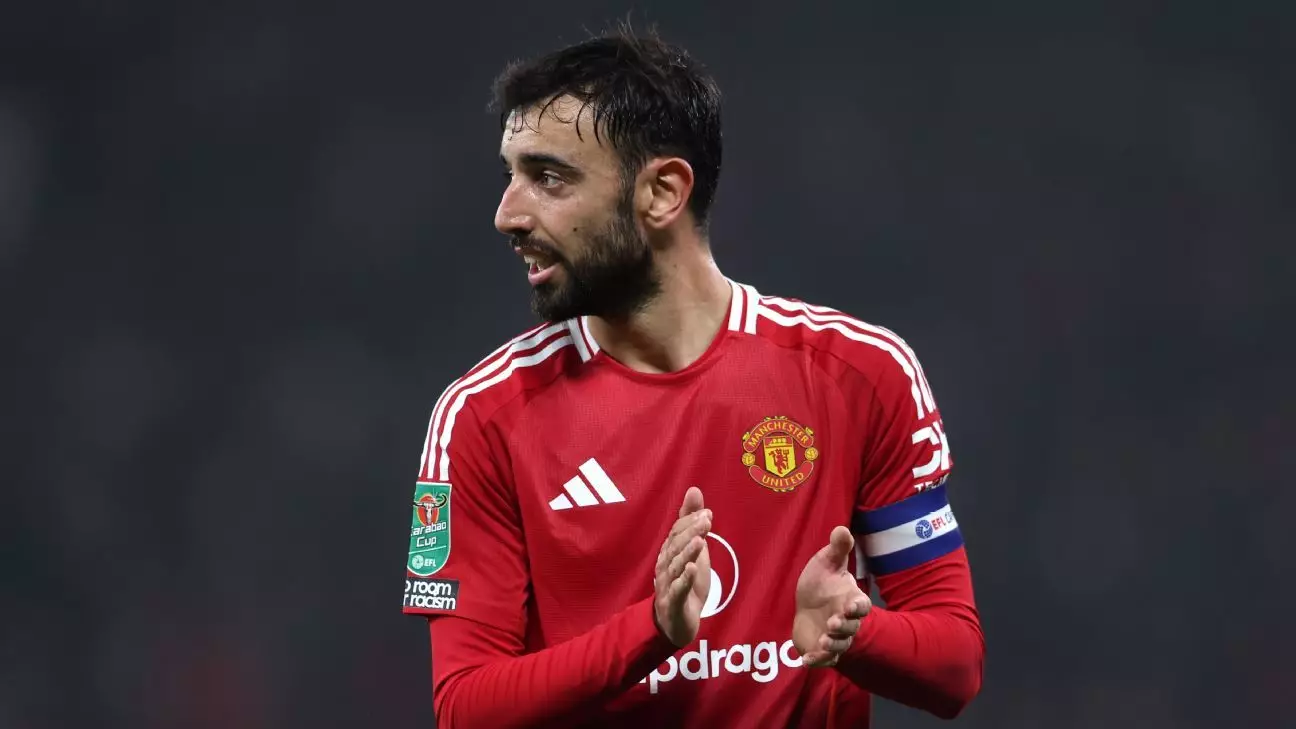In the world of football, the narrative is often driven by the performances on the pitch, but career trajectories are just as affected by the management behind the scenes. The recent sacking of Erik Ten Hag from Manchester United provides a compelling case for discussion. Bruno Fernandes, the team’s midfielder, recently highlighted the stark responsibility players must shoulder when such significant changes occur. This situation is symptomatic of a broader issue hitting the club: the expectation versus reality dichotomy that has plagued United for years.
When Ten Hag was shown the door, it was not just another managerial change; it was a striking reminder that, in professional football, results are paramount. After a dismal start to the season, the club felt compelled to act decisively. Fernandes lamented, “Whenever you see a manager go, you have to take some of the blame on yourself.” His admission that the team’s shortcomings played a major role in Ten Hag’s exit echoes a common theme in football—when the machine doesn’t work, it’s easier to swap out the gears rather than the whole assembly.
The Dutchman’s departure ignited a wave of introspection among the players, culminating in Fernandes taking the initiative to reach out and apologize personally to Ten Hag. His disappointment over the managerial change speaks volumes about the relational dynamics within the team. It isn’t just a matter of camaraderie; it’s a wake-up call. As Fernandes highlighted, “I wasn’t scoring goals, we are not scoring goals, and I feel responsible.” Here lies the crux of the issue: players who recognize their part in the team’s performance create pathways to accountability and improvement.
This perspective is crucial. A star player accepting collective guilt could serve as a catalyst for rejuvenating team morale. Without it, a cycle of blame and resignation can ensue, further imperiling team cohesion. While football is a team sport, individual performances significantly shape the outcome. Acknowledging such personal responsibility is the first step toward reclaiming the season’s narrative.
Leadership Under Pressure: The Interim Phase
The immediate aftermath of Ten Hag’s dismissal saw the appointment of Ruud van Nistelrooy as interim manager. His role at this junction is pivotal, not only for steering the team through turbulent waters but also in setting the tone for the potential future under a new management structure. Van Nistelrooy, through his self-reflection, emphasized the significance of personal accountability, remarking that the players need to “look in the mirror.” This reinforces the notion that every individual must confront their inadequacies to foster a more robust team environment.
In his own words, Van Nistelrooy articulated the emotional upheaval of recent events, stating, “It has been very difficult from last Monday to today.” Such candor is essential, fostering an atmosphere of openness among the players. When transitioning under new management, maintaining the players’ morale and focus is crucial; these factors will determine the club’s trajectory moving forward.
Looking ahead, the appointment of Rúben Amorim looms large. The anticipation surrounding his strategy underscores a critical point—managers bring more than just tactical knowledge; they imbue a club with their philosophy. Van Nistelrooy’s words affirm his supportive stance towards Amorim: “We all will be backing him and helping him to get Man United where we want them to be.” Unity within the coaching staff is paramount, especially during a transitional phase.
Amorim’s success in Portugal has generated excitement, but expectations remain high at Old Trafford. The club’s storied history demands immediate impact and results. Meanwhile, Van Nistelrooy’s tenure as interim coach serves as a unique opportunity; he must showcase his acumen and adaptability while simultaneously maintaining competitive momentum leading to the new manager’s arrival.
The swirling dynamics surrounding Manchester United highlight a fundamental truth in football: change is often inevitable yet profoundly challenging. The interplay between coaching changes and players’ accountability is intricately woven into the fabric of the sport. As Manchester United progresses through this transitional phase, the responsibility lies not only with the coaching staff but also with the players to embrace accountability and strive for improvement.
Ultimately, how the players respond in the wake of Ten Hag’s dismissal will shape the narrative of the season, influencing not just their careers, but also the legacy of Manchester United in the contemporary football landscape. The club’s next steps must focus on unity, resilience, and above all, a shared commitment to returning to the pinnacle of the sport.

